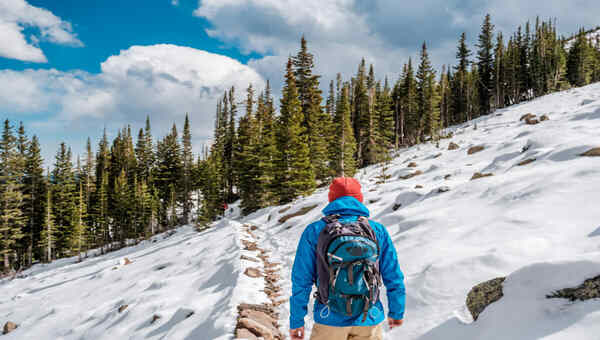How to Stay Hydrated During High-Altitude Travel

Embarking on a journey to high-altitude destinations is a thrilling adventure that offers breathtaking vistas and unique experiences. However, the thin air at high altitudes can pose challenges to our bodies, including dehydration. Staying properly hydrated is crucial for maintaining your well-being and enjoying your travel to the fullest. In this blog post, we’ll delve into the importance of hydration during high-altitude travel and offer practical tips to help you quench your thirst and embrace the heights with vitality.
Understanding High-Altitude Dehydration
High-altitude destinations, typically defined as areas above 8,000 feet (2,400 meters), present a unique set of conditions that can contribute to dehydration:
- Low Humidity: High-altitude regions often have lower humidity levels, causing moisture to evaporate more quickly from your skin and respiratory passages.
- Increased Respiration: At higher altitudes, the air contains less oxygen, leading to an increased breathing rate to compensate for lower oxygen levels. This rapid respiration can result in greater water loss through exhalation.
- Diuretic Effect: Some people may experience an increased need to urinate at high altitudes due to hormonal and physiological changes, which can contribute to fluid loss.
- Altered Thirst Perception: The dry air and cool temperatures can dampen your sense of thirst, leading to inadequate fluid intake.
- Physical Activity: Many high-altitude destinations offer outdoor activities like hiking and skiing, which can lead to increased sweating and further fluid loss.
Why Hydration Matters at High Altitudes
Proper hydration is essential to mitigate the challenges posed by high-altitude conditions and ensure a safe and enjoyable travel experience:
- Oxygen Transport: Hydration supports the transport of oxygen in the bloodstream. As the air gets thinner at higher altitudes, adequate oxygen supply becomes even more crucial.
- Acclimatization: Staying hydrated aids in the acclimatization process, allowing your body to gradually adjust to the reduced oxygen levels.
- Preventing Altitude Sickness: Dehydration can exacerbate altitude sickness symptoms such as headaches, dizziness, and fatigue.
- Energy and Performance: Hydration plays a role in maintaining energy levels and physical performance, especially during outdoor activities.
- Digestion and Comfort: Staying hydrated supports digestion and helps prevent issues like constipation, which can be exacerbated at high altitudes.
Read More : How to Stay Hydrated During Long Flights
Practical Tips for Staying Hydrated
Embrace your high-altitude adventure fully prepared by following these practical tips to stay hydrated:
- Start Hydrating Early: Begin increasing your fluid intake a day or two before your departure to ensure you’re well-hydrated before reaching high altitudes.
- Monitor Your Urine: Pay attention to the color of your urine; pale yellow indicates proper hydration, while dark yellow or amber signals dehydration.
- Carry a Reusable Water Bottle: Keep a reusable water bottle with you at all times and make a conscious effort to sip water regularly.
- Choose Hydrating Foods: Consume water-rich foods like fruits (watermelon, oranges), vegetables (cucumber, lettuce), and broths to supplement your fluid intake.
- Avoid Excessive Alcohol and Caffeine: Alcohol and caffeine can contribute to dehydration, so limit your consumption, especially during your first few days at high altitude.
- Drink Before You’re Thirsty: Don’t wait until you’re thirsty to drink; by the time you feel thirsty, you’re likely already mildly dehydrated.
- Sip Warm Beverages: Warm beverages like herbal teas can help maintain hydration levels without overstimulating diuresis.
- Use Hydrating Electrolytes: Consider hydrating drinks that contain electrolytes to replace minerals lost through sweating.
- Monitor Altitude Sickness Symptoms: Be mindful of altitude sickness symptoms and take them as cues to drink more water.
- Adjust Your Fluid Intake: Adjust your fluid intake based on activity level, temperature, and altitude. You may need to drink more during physically demanding activities.
- Hydrate at Night: Keep a glass of water by your bedside to sip if you wake up during the night. This can help counteract the fluid loss caused by increased respiration.
- Listen to Your Body: Tune in to your body’s signals. If you feel fatigued, dizzy, or experience headaches, it could be a sign of dehydration.
Read More : Staying Active With Prostate Cancer
Conclusion
Exploring high-altitude destinations presents a wonderful opportunity for adventure and self-discovery. By prioritizing hydration, you can ensure that your body adapts seamlessly to the unique conditions of elevated terrains. Staying hydrated isn’t just a matter of drinking enough water; it’s about safeguarding your health, acclimatizing effectively, and relishing every moment of your journey. With these practical tips in mind, you’re equipped to ascend to new heights while maintaining vitality, energy, and a deep sense of connection to the beauty of the world around you.




